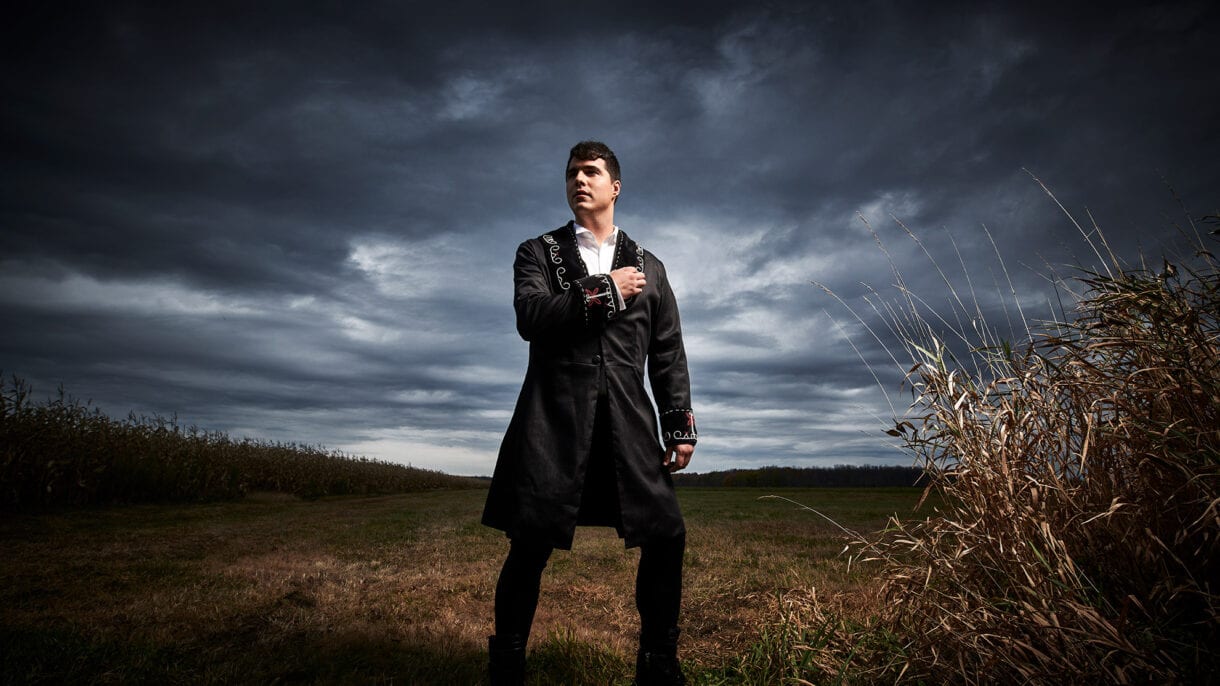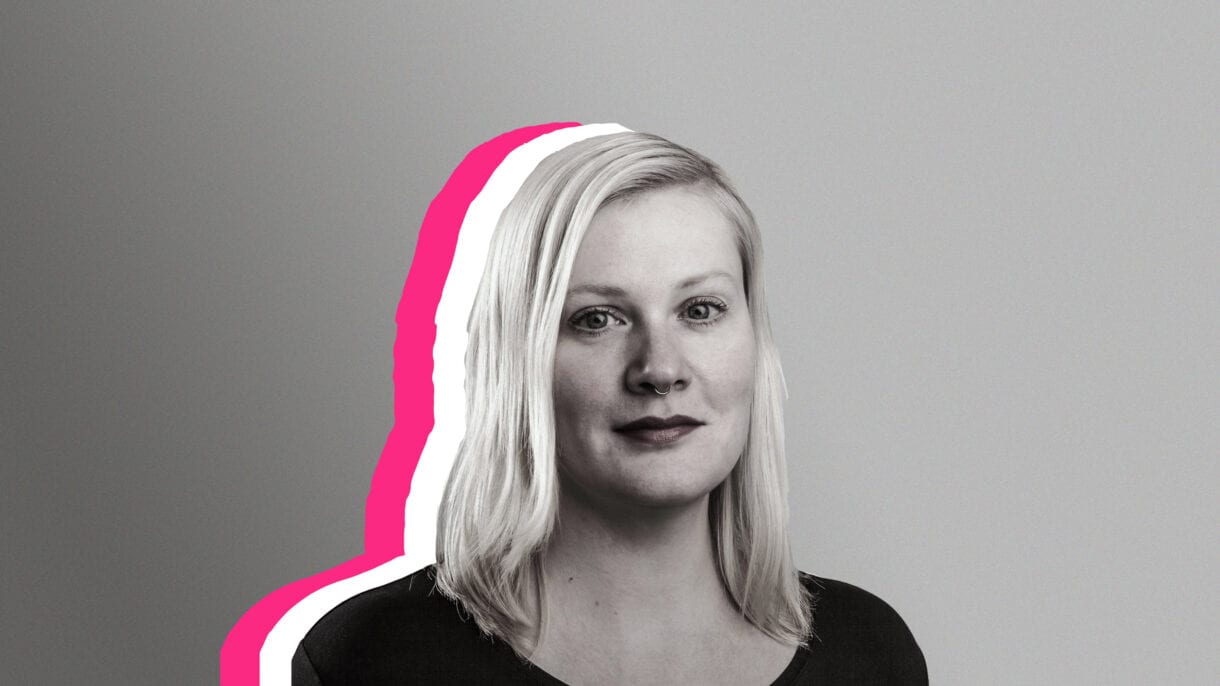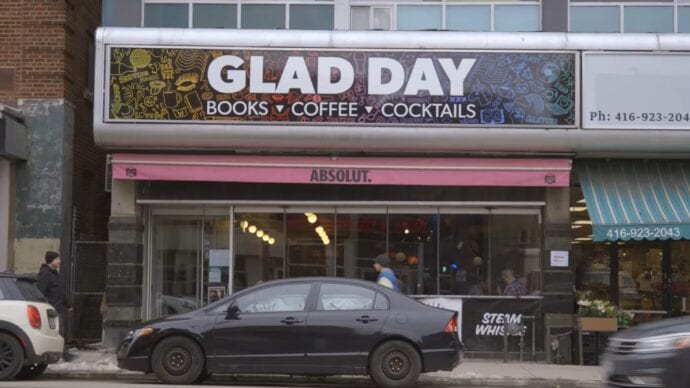Mar. 24,2020
“An act of community defence” Two sex worker advocacy groups in Toronto, Maggie’s and Butterfly, have banded together to launch the Emergency Support Fund for Sex Workers to raise financial support for cash-strapped workers during the COVID-19 crisis. “We’re seeing incomes drastically reduced across the city,” says Ellie Ade Kur, a board member with Maggie’s, a support group run by and for sex workers. “Full-service and contact sex workers especially have seen a real decline as their workplaces, like strip clubs and massage parlours, close down.” The initiative in Toronto joins others in cities like Montreal, Seattle and New York. Sex workers are particlualry vulnerable because their work is criminalized, Ade Kur says. That means when and if government and other income supports become available, sex workers can’t access them. It’s worse for migrant and refugee sex workers. “Their status is even more precarious, running the real risk of arrest or even deportation if they come forward,” Ade Kur says. “Criminalization of sex work has already left sex workers isolated from the supports they need,” she says. “And that isolation is compounded by this crisis.”That’s why Ade Kur calls the fundraising and information campaign “an act of community defence.” The group is already distributing small amounts of money to tide people over. “It’s an open application process,” Ade Kur says. “Of course what we can give out is contingent on what we raise.” The impacts on sex work of social distancing and lockdowns varies. Those who come in contact with clients, and where there is no option of stopping work, have to protect themselves and their clients as best they can. In such cases, Maggie’s and Butterfly have released a harm-reduction guide for sex workers, clients and allies Ade Kur adds. Getting word out about the relief fund and the group’s fundraising efforts can be difficult because of the ways online discussions of sex work can be censored or hidden. That’s why Ade Kur advises, “Please forward this information widely.”
—Gordon Bowness
Editor’s note, Mar. 27, 2020: An earlier version of this story misstated the impact of the COVID-19 crisis on certain sectors of sex work. It has been updated to reflect that the crisis negatively affects all sex workers.
The write stuff

If 2019 was any indication, we’re at the dawn of the age of LGBTQ2 memoirs. And what better way to celebrate your favourite queer writers than with a virtual launch party? To mark the release date of her new memoir, Saving Yourself, L.A.-based lesbian comic Cameron Esposito is hosting some of her favourite LGBTQ2 authors to talk queer memoir writing on the videoconferencing platform Zoom at 6 p.m. PST, Mar. 24. Join musician and writer Tegan Quin of Tegan and Sara (High School), author Casey McQuiston (Red, White and Royal Blue) and journalist Gabrielle Korn (Everybody [Else] is Perfect) for a nerdy night of book talk—or, as Esposito puts it, an opportunity to “ward off the existential crisis” (amen!). Bonus points: All donations made during the live event will go to independent bookstores who have lost business during the pandemic. (And besides, we could probably all use a laugh with Cameron Esposito right about now.)
—Erica Lenti
Mar. 20, 2020
Jeremy Dutcher

Jeremy Dutcher Credit: Matt Barnes
Polaris Prize-winning singer/songwriter Jeremy Dutcher was supposed to kick-off his first-ever Quebec tour on Mar. 20. Instead Dutcher, a two-spirit member of Tobique First Nation in New Brunswick, will livestream a concert beginning at 3:30 p.m. EST on Fri, Mar. 20 from his living room in Toronto to mark the now-cancelled launch date. He advises: “Dress comfy and bring snacks.”
Rufus Wainwright
The New York-born, Montreal-raised singer songwriter Rufus Wainwright is posting a song a day on Instagram in a series called #MusicalEverydays, recorded at his home in Hollywood, California. “This can be a great time to get those creative juices flowing if you’re stuck at home looking for something to do,” he writes on the first post. “I’ve been drawing a lot in this unexpected free time as you’ve seen and I’m excited to show you more too.” Wainwright also announced he’d be joining the “Together, At Home” series of concerts livestreamed on Instagram. The series launched earlier this week by the international anti-poverty group Global Citizen and the World Health Organization to raise money and awareness of their efforts around COVID-19. Chris Martin of Coldplay kicked off the series, followed by John Legend, Charlie Puth and Niall Horan. Wainwright will perform a 30-minute set beginning at 10 a.m. PST on Sat, Mar. 21.
Diving Bell Social Club
Hot Tramp, the music management team behind the Hot Tramp Fest, which bills itself as a Montreal womxn in music fest, is livestreaming a concert that features performances by singer/songwriter Hanorah, queer vocalist and producer Janette King, R&B and pop artist Maryze, Montreal via Fredrickon indie rockers LAPS and punk outfit Dish Pit. Special guests include Xtra contributor Tranna Wintour, Inés Anaya and Elspeth Wright (of Battle of Wits). Proceeds from the Stay Home Sessions will go to the artists, with 10 percent going toward popular venue The Diving Bell Social Club. The concert runs 6 p.m. to 11 p.m. on Sat, Mar. 21.
Ashley MacIsaac
Coming up: Look for a Quarantine Ceilidh from roots violinist Ashley MacIsaac with his friends singer George Canyon and comedian Bette MacDonald on Apr. 1. No details yet on which social media platform but his announcement was on Facebook. George Canyon and comedian Bette MacDonald are putting on a “quarantine ceilidh”
New face
And if you’ve been partaking in the various interactive parties online, you might want to refresh your look. Toronto drag queen Juice Boxx is hosting live online makeup tutorials. The next one is 5 p.m. on Mar. 20.
—Gordon Bowness
Mar 19,2020
Meet me at Club Quarantine

You never know who might show up to Club Quarantine. Credit: Courtesy of Instagram; Mitchell Cheeseman/Xtra
Restaurants, bars and nightclubs have been some of the hardest hit businesses as a result of social distancing and isolation. Hospitality staff have been told to stay home. Musicians and DJs have been forced to cancel their gigs. And for many folks who feel a deep sense of community through queer nightlife and parties, our connections with one another on the dancefloor have seemingly been halted. Enter: Club Quarantine, also known as Club Q. The Toronto-based queer party operates solely online, with everyone logging in using Zoom (details on how to join on their Instagram). Best of all, Club Q is open every night from 9 p.m. to 12 a.m. EST—and it’s free (donations can be made via PayPal; monies raised will go to DJs and performers and any technical costs that arise). “We just wanted to connect with each other. We’re all artists and lost gigs overnight, so this has allowed us to still be out there in some capacity,” says Brad Allen, a comedian, content creator and one of four core members of Club Q. Other organizers include trans recording artist Ceréna Sierra, digital creator Mingus New and DJ and producer Casey MQ, who’s part of the queer dance-music collective Raven’s Vision. While the four of them facilitate the technical aspects and social presence of Club Q, the community joining in nightly—which so far, has been in the hundreds—really determines what the space can be. The Mar. 17 broadcast included DJ sets from Casey MQ and Kieran Adams, while dozens of clubgoers danced in their living rooms, vogued in some incredible outfits, created mood lighting in their bedrooms and more. At one point, an attendee started a stick-and-poke tattoo on himself while everyone else watched. (Turns out, he tattooed “CLUB Q” into his arm.) It’s not only DJs getting the spotlight either. In the coming days, expect to see drag performers and performance artists featured, too. “We’re all processing this scary thing in different ways, but especially for us queers it can be extra scary,” Allen says. “If we can carve out a space where you can just dance, laugh and be entertained, we are happy.” Once it’s safe to return to nightclubs and bars, organizers plan on throwing a queer dance party in Toronto. But the popularity of Club Q means it’s likely to continue online as well. “There’s a need outside of this pandemic for the queer community to get together in this way,” Allen says. “A lot of people joining are those who don’t really go out [to clubs] but they’re able to come tougher and go off in their living room. We’d love for this to evolve and grow.”
—Michelle da Silva
Author and playwright Catherine Hernandez reads to children online

Writer Catherine Hernandez and friends. Credit: Dahlia Katz
Catherine Hernandez remembers struggling as a single mother to balance work and parenting. She knows parents and caregivers do their best to deal with lifestyle changes brought by social distancing during the COVID-19 pandemic. That insight gave the author of the 2017 novel Scarborough and the upcoming novel Crosshairs the idea to start livestreaming storytimes for kids on her Facebook page. “I used to be a home daycare provider and I am a children’s book author. I knew if I occupied little ones, even for 15 minutes, that would be 15 minutes adults could take a breather,” she said via an email statement to Xtra. “The more we occupy them, the better chances the adults will commit to the isolation practices.” In her storytime videos, Hernandez greets her audience with a smile and a shoutout. She then proceeds with various activities like drawing roses, playing restaurant and sending a message—one of her first was to thank frontline workers who work diligently during the time of the pandemic. Hernandez ends the livestream by reading a children’s book of the day. “I wanted children to be comforted by the scheduled reading. It happens at 10 a.m. EST every day, including the weekends, since we really don’t have a weekend anymore. I know children thrive with schedules, structure and boundaries,” she said. “I show them a new skill, a captivating activity, a craft or a play prompt. I also tell them a story from one of our books on our shelves. In addition to comforting them, I wanted to challenge their usual tendencies.” Hernandez said through her stories and usage of creative play with the help of a doll named Kaleb, she teaches kids to listen more, to develop compassion and gratitude. But the enjoyment does not end with kids. She said the sessions also appeal to parents and adults watching her videos. “I know parents who watch have a pretty good chuckle seeing my usual antics. I’ve had dolls with their heads on backwards. I am the worst visual artist ever. I have dropped things. We all can have a good laugh during this challenging time,” she said. As an artistic leader and author, Hernandez said she feels like during this time of social distancing there’s really nothing she can do but stay home. So she decided to use this time to inspire children through the internet using her skills. “If this gives people respite, comfort and inspiration, I am happy to pitch in,” she said. Get to know Catherine Hernandez more in Xtra’s Inspired.
— Arvin Joaquin
Mar. 18, 2020
We Berlin

Beatrice Behn, one of the organizers of Berlin's Queer and Womxn Relief for COVID-19 Credit: Courtesy René Gebhardt; Mitchell Cheeseman/Xtra
Six months ago, writer and filmmaker Beatrice Behn and two other artists decided to set up Karada House, a queer collaborative art space in Berlin. But when confronted with the unspooling disaster of COVID-19, the trio transformed it into a support and service hub called Queer and Womxn Relief for COVID-19. As of Mar. 18, they were coordinating about 900 volunteer helpers to deliver much-needed goods, food and medicine to isolated and quarantined queer and trans folk. “We basically fell into this,” Behn says. “Because last week, when the virus here started hitting really bad, we already saw that people were having a hard time. We had definitely hit a point with queer people becoming anxious and scared. We realized that we needed to start an initiative right away before things get too bad.” Even in a progressive cultural capital like Berlin, LGBTQ people often find that their unique needs aren’t always met by mainstream institutions. “There’s a lot of solidarity and neighbourhood initiatives in Berlin,” Behn says. “But they don’t really include queer people so much. Not everybody feels comfortable or safe to ask their neighbours for help. If you’re trans or visibly queer you might be endangered. There’s a lot of discrimination here toward people of colour and others.” The first priority was rounding up volunteers. The group used a set of Google forms to coordinate the drive; they had copied them from another grassroots support group called Queer Care UK. “We just threw those forms out there,” Behn says, “and they got shared a lot. It was amazing.” (The forms are free to copy.) Karada House tries to match two helpers to every person in need. The volunteers handle pickups and deliveries; sometimes they just offer a friendly ear for those who need to talk. “We have a lot of people who need just somebody to talk to because they can’t go to their queer spaces anymore,” Behn says. “They are socially isolated which has a huge toll on their mental health.” Access to medicines is emerging as a critical need. “If you are part of the German health system and have health insurance, you’re fine,” Behn says. “But if you’re not— and there are quite a lot of people who are not—you are in big trouble right now.” So Behn’s group is trying to coordinate drug pools.“We have started asking people if they have T [testosterone] or special HIV medication that others are running out of, to start to pool [what they have]. “If people have money or if they have a prescription, we can get this for them,” Behn says. “Everything else… basically, we’re back to trade and bartering. It’s like medieval times.” Now Behn’s group is focussing on financial assistance, with a fundraising drive and a system to distribute 100 percent of funds. “A lot of queer people in Berlin live and work in very precarious situations. [So many have] lost their jobs. A lot of people are falling through the German social system. We are already having a crisis in the queer community. People can’t even buy food anymore. And we’re only starting with the virus.” In addition to providing frontline support, Karada House has taken on a coaching role, working with teams trying to replicate their work in Amsterdam, Oslo, Cologne and elsewhere. Behn is hoping to have a guide to best practices on their website early next week. “Until then,” they say, “people can just write to us on any kind of social media platform or at relief@karada-house.de. I’ll just get in contact with them and teach them.”
—Gordon Bowness
Glad Day Bookshop gives back
 Like other brick-and-mortar bookstores, Glad Day Bookshop’s existence has been necessary but precarious. Nestled in Toronto’s Queer Village, it’s the oldest LGBTQ2 bookstore in the world, run by a collective who moved and transformed the shop in 2016 to include a restaurant, bar and event space to help keep it afloat. Since then, it’s become even more of a haven for queer and trans Torontonians, a natural home for communities to congregate. Pass by Glad Day on any given night, and you’re bound to be surrounded by artists, from drag performers to poets reading their newest works to DJs sampling new queer musicians—that was until this week. Those artists—and Glad Day itself—are now in a squeeze, after the shop shut its doors Mar. 16 for the foreseeable future. And among those most deeply affected are our communities’ most vulnerable—artists who can’t pay their rent or buy food and tip-based workers left without incomes. No stranger to such precarity, Glad Day has since stepped up. In the ensuing days, the bookshop’s charitable arm, Glad Day Lit, launched an Emergency Survival Fund—an opportunity to keep both the store alive during its shutdown and fund queer and trans artists most in need. Thirty percent of donations will support the bookshop and charity, and the remainder will be divvied up among LGBTQ2 artists. The immediate goal: $100,000 to keep Glad Day operating for a month, and financial support for up to 150 artists. “The minute that spaces lost audiences and started cancelling bookings, we knew things were going to get worse,” Glad Day’s Michael Erickson says. “We know that a lot of people who come to or perform at Glad Day rely heavily on tips and bookings for their incomes.” Since its launch, the fund has amassed more than $50,000 in donations, for more than 600 artists in need. But even greater financial aid is still desperately needed: More than $230,000 is required to help those who applied in the past 22 hours pay their rent. For now, Glad Day has decided to provide small amounts to those with the greatest financial needs. Erickson says the fund will continue “until the dire need for those in crisis ends.” “A lot of people do want to help and don’t always know how,” Erickson says. “A fund like this gives people a way to know they’re making a direct impact in a short time frame.” It’s all part of the integral effort being made to uplift our vulnerable communities. Because if Glad Day’s history is any proof, we do best when we come together in times of uncertainty.
Like other brick-and-mortar bookstores, Glad Day Bookshop’s existence has been necessary but precarious. Nestled in Toronto’s Queer Village, it’s the oldest LGBTQ2 bookstore in the world, run by a collective who moved and transformed the shop in 2016 to include a restaurant, bar and event space to help keep it afloat. Since then, it’s become even more of a haven for queer and trans Torontonians, a natural home for communities to congregate. Pass by Glad Day on any given night, and you’re bound to be surrounded by artists, from drag performers to poets reading their newest works to DJs sampling new queer musicians—that was until this week. Those artists—and Glad Day itself—are now in a squeeze, after the shop shut its doors Mar. 16 for the foreseeable future. And among those most deeply affected are our communities’ most vulnerable—artists who can’t pay their rent or buy food and tip-based workers left without incomes. No stranger to such precarity, Glad Day has since stepped up. In the ensuing days, the bookshop’s charitable arm, Glad Day Lit, launched an Emergency Survival Fund—an opportunity to keep both the store alive during its shutdown and fund queer and trans artists most in need. Thirty percent of donations will support the bookshop and charity, and the remainder will be divvied up among LGBTQ2 artists. The immediate goal: $100,000 to keep Glad Day operating for a month, and financial support for up to 150 artists. “The minute that spaces lost audiences and started cancelling bookings, we knew things were going to get worse,” Glad Day’s Michael Erickson says. “We know that a lot of people who come to or perform at Glad Day rely heavily on tips and bookings for their incomes.” Since its launch, the fund has amassed more than $50,000 in donations, for more than 600 artists in need. But even greater financial aid is still desperately needed: More than $230,000 is required to help those who applied in the past 22 hours pay their rent. For now, Glad Day has decided to provide small amounts to those with the greatest financial needs. Erickson says the fund will continue “until the dire need for those in crisis ends.” “A lot of people do want to help and don’t always know how,” Erickson says. “A fund like this gives people a way to know they’re making a direct impact in a short time frame.” It’s all part of the integral effort being made to uplift our vulnerable communities. Because if Glad Day’s history is any proof, we do best when we come together in times of uncertainty.
—Erica Lenti
Pop star offers company during self-isolation
Queer icon Charli XCX released the schedule of her self-isolation Instagram live program on Mar. 18. The pop star announced she’ll be having daily online events to provide support to those currently self-isolating. In the next couple of days, Charli will be joined by various guests such as Christine and the Queens, Diplo, Rita Ora, Kim Petras and Clairo. The program varies from sharing insights about self-isolation, conversations with fans and personal training. The English singer-songwriter is best known for uplifting, supporting and collaborating with queer and trans artists such as Petras, Clairo and Troye Sivan. In October, Charli was filmed fangirling during a gay couple’s proposal. The following month, during a concert in Russia, Charli was filmed saying, “I love the LGBTQ+ community so much because they f**king keep my career alive.”
According to a release, Charli says she’s using her platform to connect the online world and the real world through the shared experience spreading positivity. “We’re all in this together, so self-isolation doesn’t have to be isolating,” she says. In the meantime, here’s “Boys” by Charli XCX because why not
— Arvin Joaquin
 This story is part of Your Communities In Action, a continuing series on LGBTQ2 folks coping and caring for each other during the COVID-19 crisis.
This story is part of Your Communities In Action, a continuing series on LGBTQ2 folks coping and caring for each other during the COVID-19 crisis.

 Why you can trust Xtra
Why you can trust Xtra


